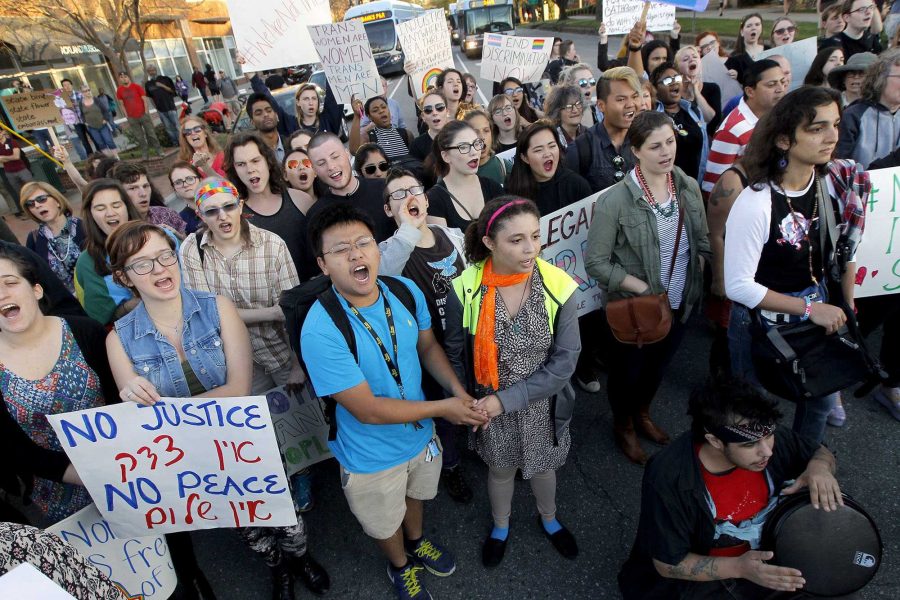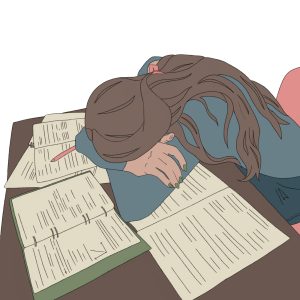States regress with discriminatory legislation
A group of protestors fill the streets in Chapel Hill, North Carolina. Controversial House Bill 2 handicaps the whole state’s ability to pass non-discriminatory ordinances in addition to preventing transgendered individuals from using facilities based on the gender they identify with. Companies such as PayPal are backing out of business with the state as they do not want to be associated with the law.
April 7, 2016
Despite the progress the United States has been making with the LGBTQA+ community, some states are attempting to undo it. In Georgia, North Carolina, and Mississippi, legislation has been written to restrict the rights of LGBTQA+ citizens.
Georgia nearly passed a bill that would allow businesses to refuse service based on their religious beliefs had it not been for the veto by Governor Nathan Deal and threats to leave from major organizations that do business in the state like Disney and AMC.
In a press conference, Deal said, “I do not think we have to discriminate against anyone to protect the faith-based community in Georgia, which I and my family have been a part of for generations.”
Despite the Georgia veto, similar pieces of legislation in North Carolina and Mississippi have been passed. The Mississippi law is a similar but stricter version of the Georgia religious liberty bill. It will not only allow businesses to refuse service, but will also give protection to state workers who refuse to issue same-sex marriage licenses.
In a statement, Mississippi Governor Phil Bryant defended the law saying, “[it] merely reinforces the rights which currently exist to the exercise of religious freedom as stated in the First Amendment to the U.S. Constitution.”
North Carolina has one of the most difficult laws to circumvent. Dubbed the “bathroom law,” North Carolina House Bill 2 requires all citizens to go to the bathroom of their gender assigned at birth. This has been a huge blow to the transgender community.
The state’s house claimed this was to protect people from sex offenders who would sneak in the opposite gender’s bathroom (despite no evidence that this has ever taken place). In response, the American Civil Liberties Union has filed a lawsuit against North Carolina.
Senior and co-president of the Gay Straight Trans Alliance Rosie Hou said, “It’s concerning that there are people out there who don’t care or aren’t educated enough to know that some people literally do not have the right to be comfortable with who they are.”
“…I believe that regardless of who you are or what you may feel, we’re all humans, and every single one of us has rights. And this goes beyond just America. America may be one of the first countries to write those rights down, but this should apply everywhere.”







